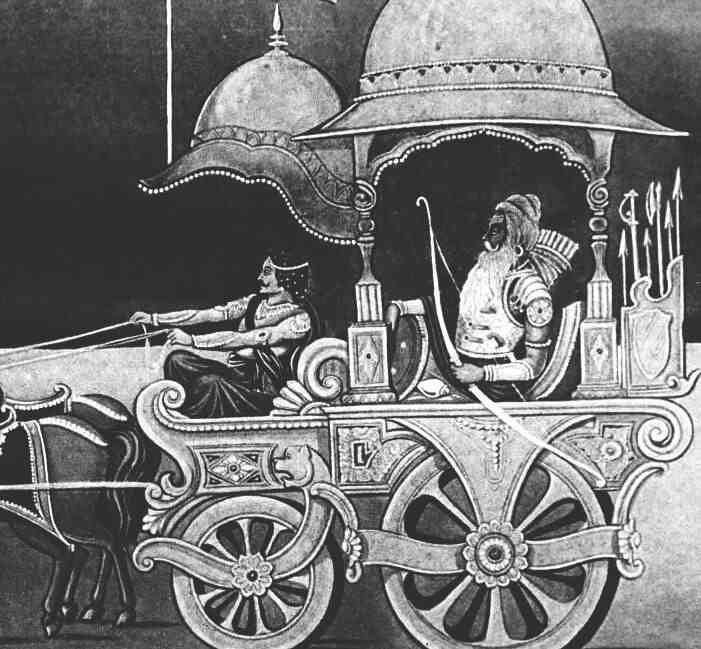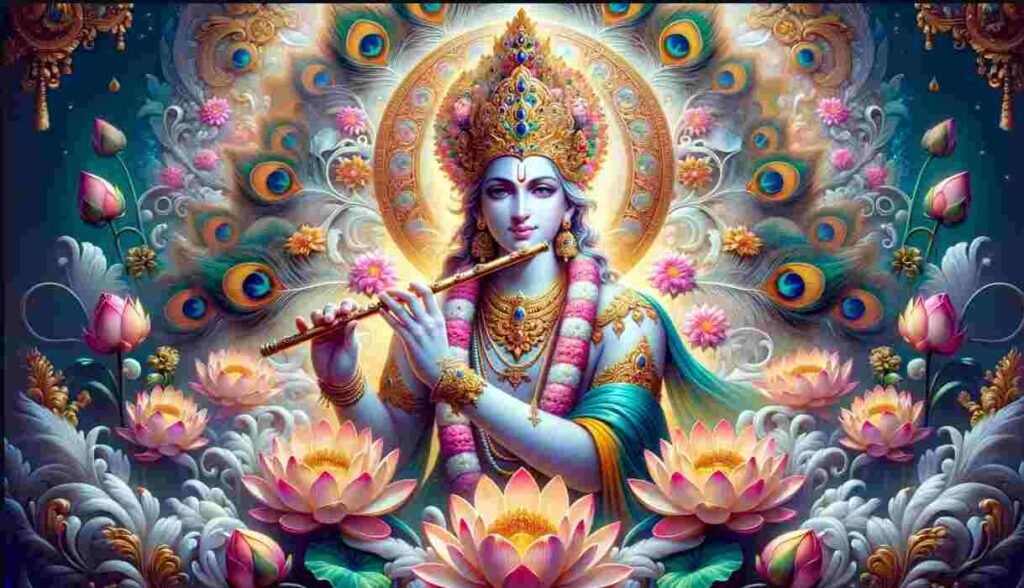
Chapter 1 Gita Shlok 3
Duryodhana highlights Dhrishtadyumna’s role, a student trained by Dronacharya who now fights against him. This seeds doubt in Dronacharya’s loyalty and amplifies the disrespect towards both him and his lineage.
पश्यैतां पाण्डुपुत्राणामाचार्य महतीं चमूम् । व्यूढां द्रुपदपुत्रेण तव शिष्येण धीमता ॥
Meaning: Guru Dronacharya! Look at this large and heavy army of the Pandavas, which has been arranged in a formation by your wise disciple, Dhrishtadyumna, the son of Drupada.
Suspicion and Caution in Politics
Main Topic:
Dhritarashtra’s suspicion of Dronacharya and his warning to him to be careful in the war.
Introduction:
This sentence comes at the beginning of the Mahabharata war. Before the war between the Pandavas and Kauravas begins, Duryodhana and Dronacharya are talking to each other.
Explanation:
Duryodhana was a skilled politician. He was well aware of Dronacharya’s prowess as a general and warrior, but he also demonstrated immense kindness toward his students. He also knew that Dronacharya had a political rivalry with Drupada. Drupada’s son Dhrishtadyumna had received military training from Dronacharya and was now fighting on the Pandava side.
Duryodhana told Dronacharya that the Pandava army was very large and powerful. It included Dhrishtadyumna, who had learned the art of war from Dronacharya himself. Duryodhana meant that Dronacharya should not be generous to his students. He would raise the Pandavas’ prospects of victory if he accomplished this.
With this warning, Duryodhana showed off his political savvy. He understood the weaknesses of his enemies well and tried to exploit them.
Learnings:
This line reminds us that in politics, mistrust and prudence are crucial. We should also understand our enemies’ weaknesses well and try to exploit them.
Here is a more detailed explanation of the education that this sentence teaches us:
- Suspicion: We should always be suspicious of our enemies. We need to be ready for anything since they might be plotting to hurt us.
- Caution: We should always be cautious in our dealings with our enemies. We should not trust them too easily, and we should always be on guard for their tricks.
- Know our enemies’ weaknesses: If we know the weaknesses of our enemies then we can remain alert from them and protect ourselves.
Conclusion:
Duryodhana showed his political acumen by issuing this warning. He tried to take advantage of the weaknesses of his enemies as he was fully aware of them. It shows the kindness of Dronacharya.

